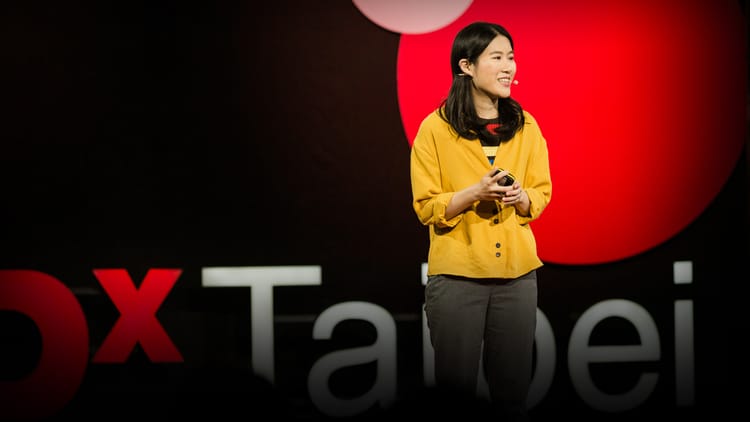“The Healing Power of Reading” by Michelle Kuo
• public
Table of contents
Kuo shares her experience teaching literature in a prison and highlights the transformative impact of reading, showing how books can offer solace, empathy, and a renewed sense of hope.
For Key Ideas, Questions and Quotes from this talk, you can scroll below.
Michelle Kuo gave this speech at the TED Conference. All rights to the speech and the video above belong to TED.
About Michelle Kuo
Michelle Kuo (born 1977 or 1978) is an American curator, writer, and art historian. Since 2018, Kuo has been a curator of painting and sculpture at the Museum of Modern Art. She was previously editor-in-chief of Artforum magazine starting in 2010. (Source: Wikipedia)
Key Ideas From Talk
I started reading at an early age, not because someone forced me to, but because it was a relationship that developed naturally. Reading helped me when I was tired or overwhelmed and rescued me from endless loops in my mind. It taught me healthy ways of thinking.
Of course, these changes didn't happen overnight or from reading a single book. Instead, reading changed me every day, with a small impact from each book. It even helped to heal me during tough times.
Michelle Kuo has witnessed the healing power of reading and writing, and shares a more dramatic and thought-provoking example in her speech. It's definitely worth listening to. The ideas that affected me the most from the speech are as follows:
- Reading as a source of connection and empathy: Reading allows us to step into the shoes of others, fostering empathy and understanding. Through literature, we can relate to different experiences, cultures, and perspectives, ultimately bridging divides and building connections.
- Reading as a means of self-discovery and personal growth: Books can serve as mirrors that reflect our own experiences and challenges, helping us navigate and make sense of our lives. By engaging with literature, we gain insights into ourselves and find solace, inspiration, and guidance.
- Reading as a tool for healing and transformation: The act of reading can be a transformative and healing process, providing comfort, catharsis, and resilience. It offers an escape from reality, a space for reflection, and the opportunity to envision new possibilities.
- Reading as an instrument for social change: Books have the power to challenge societal norms, ignite conversations, and inspire collective action. Literature has historically played a significant role in social justice movements, amplifying marginalized voices and fostering critical thinking.
- The importance of access to books and literacy: Widespread access to books and literacy education is crucial for individuals and communities to benefit from the healing power of reading. Efforts to promote reading and improve literacy rates can lead to positive personal and societal transformations.
Questions to Ask Ourselves
Connection and empathy:
- How has reading helped me understand and empathize with different perspectives and experiences?
- In what ways can I use literature to bridge divides and build connections with others?
- What books have had a profound impact on my ability to connect with others and foster empathy?
Self-discovery and personal growth:
- How has reading contributed to my personal growth and self-discovery?
- Are there specific books or genres that have helped me navigate and make sense of my own life experiences?
- What insights or lessons have I gained from literature that have shaped my identity and worldview?
Healing and transformation:
- How has reading served as a healing tool for me during challenging times?
- In what ways does literature provide comfort, catharsis, or resilience in my life?
- Can I identify specific instances where reading has transformed my perspective, emotions, or mindset?
Social change and activism:
- How can I use books and literature to challenge societal norms and spark conversations about important issues?
- Are there ways in which I can leverage reading as a catalyst for social change and advocacy?
- How can I support efforts to promote literacy and increase access to books in my community or beyond?
Access to books and literacy:
- Do I have easy access to a variety of books and reading materials? If not, how can I improve my access to literature?
- How can I contribute to initiatives that promote literacy and reading in my community or support organizations working towards this goal?
- What steps can I take to ensure that everyone, regardless of their background or circumstances, has the opportunity to benefit from the healing power of reading?
Notes From Talk
Related List and Guide
This talk is a part of following list: "Talks That Changed My Perspective".
